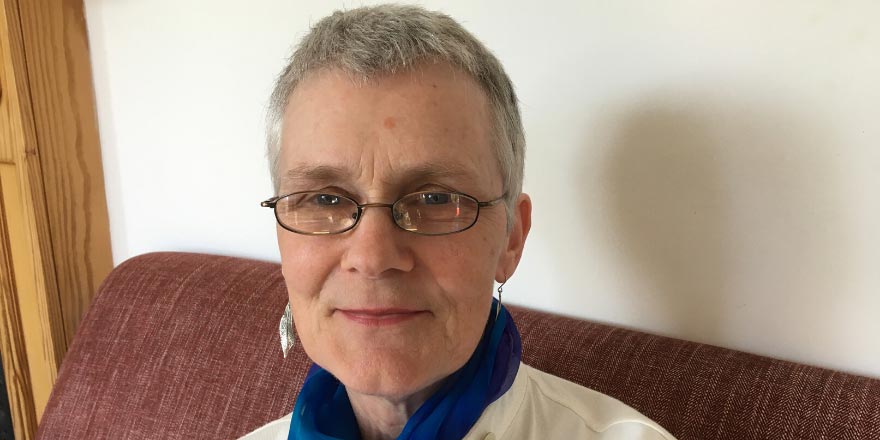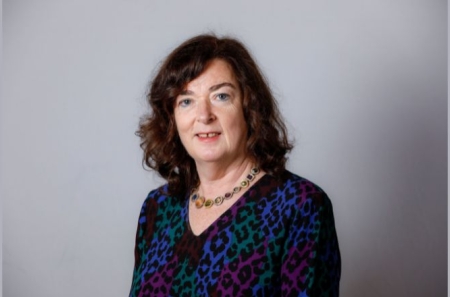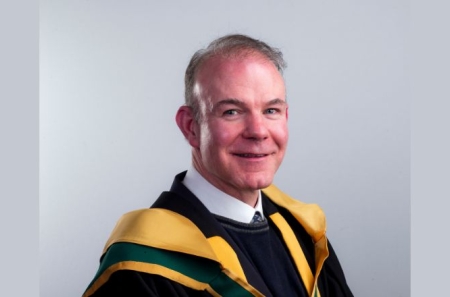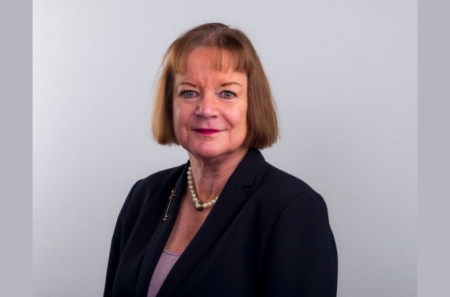
Máirín Nic Eoin MRIA: Irish Language
06 July 2020Professor Nic Eoin researchs modern and contemporary Irish-language literature, examining also the changing social and sociolinguistic contexts of literary production in Irish.
Máirín Nic Eoin MRIA, Professor Emerita of Irish, Dublin City University
My area of research is modern and contemporary Irish-language literature. The changing social and sociolinguistic contexts of literary production in Irish have framed all my research projects and publications. My primary degree is in Modern Irish and Geography, and my first research project was a study of regional literature—in particular the forms of life writing and regional fiction to emerge in the West Kerry and Donegal Gaeltacht regions in the decades after Ireland’s independence.
Against all the odds, every generation since independence has produced writers of the highest calibre, and it is a huge privilege to be able to read the work of writers like Seosamh Mac Grianna, Máirtín Ó Cadhain, Máiréad Ní Ghráda and Caitlín Maude, not to mention the truly wonderful new writing appearing each year from Irish-language publishing houses. This writing is deserving of critical appraisal, and a key responsibility of Modern Irish literary scholars is that of developing a critical language and a conceptual framework appropriate to that task.
One of the truly enriching aspects of working on modern and contemporary writing in Irish is the constantly unfolding dialogue between that writing and the rich Irish-language literary and oral tradition. Poetry and historical fiction in particular draw deeply from these wells, and my own attempts to examine ‘revisionist mythmaking’ in the work of contemporary authors have been deepened and enriched by the critical readings and insights of folklorists and scholars who are experts in the earlier literature.
Life writing and questions related to authorship and genre have been abiding interests, and the publication in 1982 of An litríocht réigiúnach has led to collaborative publication projects on emigration literature and on the experience of childhood, through the eyes of non-elite Irish-speaking communities. In Eoghan Ó Tuairisc: beatha agus saothar, published in 1988, I examined the work of a versatile bilingual writer and translator who loved Sophocles and Shakespeare as much as he did Ó Rathaille and Merriman. Research for this book brought me into the critical field of post-colonial interculturality, of which, more below.
As feminist critical perspectives came to the fore in the 1990s, gaining momentum in the wake of the publication in 1991 of the controversial first three volumes of the Field Day anthology of Irish writing, the question of female authorship in the Irish tradition could not be ignored. My doctoral thesis, a version of which was published in 1998 as B’ait leo bean: gnéithe den idé-eolaíocht inscne i dtraidisiún liteartha na Gaeilge, examined how literary genres and tropes were used over the centuries to embed a gender ideology that was profoundly disabling for women. While accounting for the dearth of named female authors, the study also acknowledged historical references to and examples of female creativity and female patronage. This dual focus was crucial, because an important motivation in undertaking that research was an understanding of the effect on contemporary women writers of the anxiety of absence associated with a male-dominated literary tradition.
In Trén bhFearann Breac: an díláithriú cultúir agus nualitríocht na Gaeilge, published in 2005, I looked at twentieth-century literature in Irish in the context of linguistic minoritisation and the accompanying processes of cultural displacement. The book critiques the Anglophone focus of much post-colonial literary criticism, both in Ireland and internationally, while also acknowledging the need for Irish-language scholars to place their own critical practice within a broader theoretical framework. Themes explored are the relationship between literary production and cultural and linguistic change, and writers’ diverse responses to questions of marginalisation, displacement, hybridity and interculturality. Since writing that book, I have been exploring further the idea of Irish-language literature as a form of minority discourse, and arguing that it is its preoccupation with issues of minority, sustainability and survival that connects literature in Irish to global ecological and humanitarian concerns.
International interest in Irish-language literature and scholarship has been increasing in recent years, and I am proud to have been involved in two landmark conferences that explored the transnational and global dimensions of Irish-language writing. One of these was co-hosted by St Patrick’s College, Drumcondra/Dublin City University and University College Dublin, and resulted in the publication in 2015 of the two-volume Litríocht na Gaeilge ar fud an domhain. The other was hosted by Charles University, Prague, with the collaboration of scholars from Dublin City University and the University of Notre Dame, Indiana. It was the largest conference ever to be held through Irish outside of the island of Ireland, with contributions from speakers based in Poland, Finland, France, the United States, the UK, the Czech Republic and Ireland. A volume of selected proceedings, entitled Ar an imeall i lár an domhain: ag trasnú tairseacha staire, teanga, litríochta agus cultúir (‘On the margins in the centre of the world: crossing historical, linguistic, literary and cultural thresholds’), currently in press, reflects the diverse range of material presented at what was a truly historic gathering.
I am sometimes asked if I find working on literature in a minoritised language like Irish limiting. My answer is always an emphatic ‘No’. In fact, part of my fascination with literature in Irish is the sense of marvel at the creative output of a language that is struggling for its very existence as a community language. Writers are aware of the endangered status of their chosen medium, and yet they insist on expressing themselves in a language that will never bring them fame or fortune, addressing their works to a small core readership or, in the words of Nuala Ní Dhomhnaill in the poem ‘Ceist na Teangan’, placing their hopes i mbáidín teanga (‘in a language boat’) in anticipation that it may take them, like Moses in his basket, into the lap of some Pharoah’s daughter.
The positive critical reception of recent translations of the works of Máirtín Ó Cadhain, and the global reputation of Ní Dhomhnaill, have helped keep literature in Irish on the world map, encouraging ongoing critical engagement. The fiftieth anniversary of Ó Cadhain’s death will be marked by a number of conferences and publications in 2020. A book currently in production is an annotated edition of three unpublished items from the Ó Cadhain papers held in Trinity College, Dublin. This is a collaboration with Helsinki-based folklorist Mícheál Briody and the items, which deal with oral and literary composition, throw fresh light on Ó Cadhain as creative writer and critic.
It is an exciting time to be working in Irish-language literary studies, with a wonderful new generation of scholars coming to the fore, and new research strands and employment opportunities opening up both in Ireland and internationally. I believe that, in a globalised world, literature in Irish has much to teach us about minority cultures and how they can light up paths to new forms of transnationalism. I hope to devote time and attention in the next phase of my work to reflecting on these issues.
Read other Member Research Series articles



